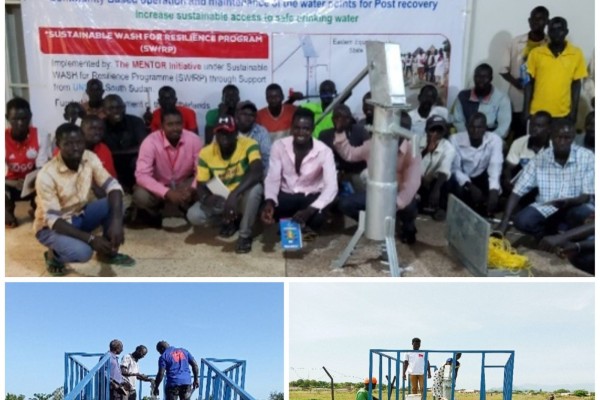Social and Behaviour Change Communication enables positive behaviour changes in communities helping to reduce the transmission of vector-borne diseases.
Through partnerships with local health authorities, communication strategies are developed that empower people to adopt preventive measures and protect themselves and their families.
In regions such as northern Mozambique, Venezuela, and northern Syria, our Social and Behaviour Change Communication programme address other prevalent vector-borne diseases such as dengue and leishmaniasis, alongside malaria control.
Our community-based approach involves working closely with people who have strong links to their communities and can provide valuable cultural insights. These community members, often referred to as ‘health champions’, help share information, raise awareness, and promote behaviour change.
The knowledge and trust established by these community health champions has had a significant impact on disease prevention. Social behaviour change communication initiatives have led to:
- increased awareness of vector-borne diseases,
- improved understanding of transmission risks, and
- the adoption of preventive behaviours.
By partnering with health authorities, we make sure our messaging aligns with national health policies and guidelines. This furthers strengthens the integration of our programmes into the healthcare system.
This work involves adapting messages to address diverse cultural contexts, overcoming established beliefs, and addressing social barriers. To overcome the challenges of Social and Behaviour Change Communications we engage community members, religious leaders and influential people in their communities.
This work helps bridge the gap between community-led initiatives and the formal healthcare system, resulting in a comprehensive and joined up approach to disease prevention and control.
Our work in northern Mozambique, Venezuela, and Syria shows the impact of community led Social and Behaviour Change Communication programmes. By empowering community members to take ownership of their health, there has been an increased uptake of preventive measures. This includes:
- the proper use of bed nets,
- the elimination of breeding sites, and
- improved household storage to avoid mosquito breeding.
This approach has helped increase community resilience and created a sense of collective responsibility for health.
Social and Behaviour Change Communications can create a lasting impact. By exploring emerging technologies and new communication channels, and engaging with digital platforms, we can expand our reach and deliver targeted messages to different groups.


